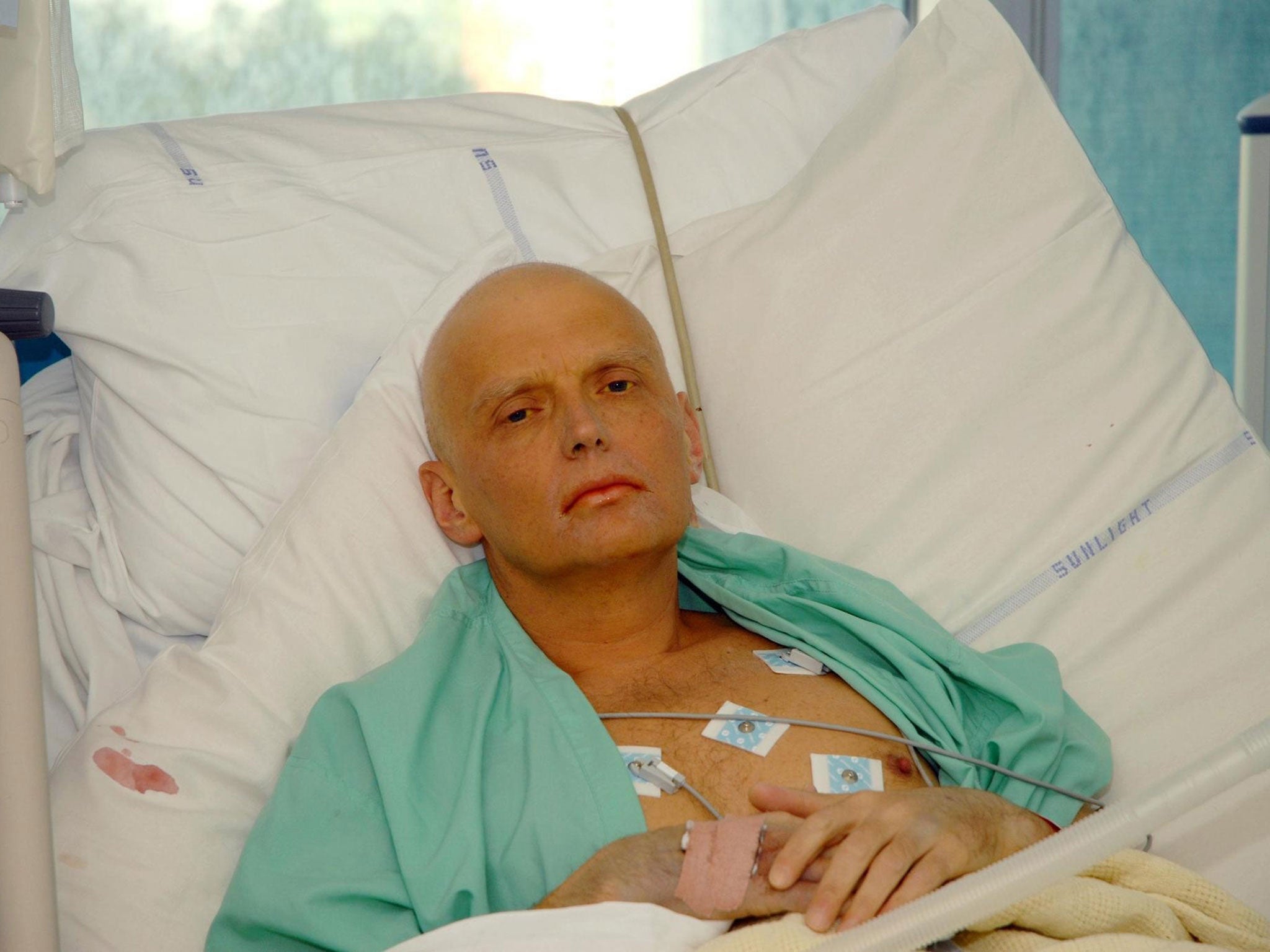Former Russian spy 'would give evidence' to public inquiry into killing of Alexander Litvinenko
US-based witness could provide link between murdered dissident and senior Moscow figures

Your support helps us to tell the story
From reproductive rights to climate change to Big Tech, The Independent is on the ground when the story is developing. Whether it's investigating the financials of Elon Musk's pro-Trump PAC or producing our latest documentary, 'The A Word', which shines a light on the American women fighting for reproductive rights, we know how important it is to parse out the facts from the messaging.
At such a critical moment in US history, we need reporters on the ground. Your donation allows us to keep sending journalists to speak to both sides of the story.
The Independent is trusted by Americans across the entire political spectrum. And unlike many other quality news outlets, we choose not to lock Americans out of our reporting and analysis with paywalls. We believe quality journalism should be available to everyone, paid for by those who can afford it.
Your support makes all the difference.A key witness in the investigation into Alexander Litvinenko’s killing, who helped the murdered dissident compile a report on a senior businessman with strong ties to the Kremlin, is willing to give evidence at a public inquiry, The Independent has learnt.
His co-operation will increase the pressure on the Government to abandon the formal inquest into the former KGB agent’s death, which descended into confusion last week when the High Court judge in charge said he could not take evidence on possible Russian state involvement for reasons of national security.
Mr Litvinenko’s widow, Marina, has called for a public inquiry to replace the inquest, after accusing Sir Robert Owen of making a “decision to abandon his search for the truth about Russian state responsibility” for her husband’s death.
The witness, a US-based former Russian spy who worked with Mr Litvinenko in the months leading up to his death and wrote a secret dossier on a senior executive at Aeroflot with links to Russian President Vladimir Putin, is believed to hold key evidence. British counterterrorism police considered him such a vital witness that they visited the US three times to persuade him to give evidence at the inquest.
London’s relations with Moscow sank to a post-Cold War low after Mr Litvinenko was poisoned with radioactive polonium-210 at a London hotel in November 2006. But David Cameron’s meeting with Mr Putin earlier this month at the Black Sea resort of Sochi has indicated thawing relations between the two countries.
Alex Goldfarb, an old friend of Mr Litvinenko who read out a statement on Mr Litvinenko’s behalf as he lay dying accusing Moscow of involvement in his killing, lambasted the British Government’s interference in the case as politically motivated.
“It didn’t come as a surprise [after] Mr Cameron’s latest meetings with Mr Putin and [their] fraternising. The writing was on the wall,” said Mr Goldfarb, an American citizen for 25 years, via telephone from the US.
One possible line of inquiry for British police relates to some work undertaken by Mr Litvinenko for a private British security company called Titon International.
Mr Litvinenko wrote a report for Titon International on powerful figures in Moscow, which was rejected by the security firm for being of poor quality. Mr Litvinenko then contacted the former spy who has now emerged as a key witness in the investigation, who produced a far more comprehensive dossier on the same individuals.
The murdered Kremlin critic then shared the report with his friend Andrei Lugovoy, one of the main suspects in the case and whom Russia has refused to extradite. Mr Lugovoy travelled to Russia where the documents fell into the hands of powerful figures in Moscow.
A spokesman for the Litvinenko inquest declined to comment, saying only: “It’s too early to say who will be called as witnesses to the inquest.”
Join our commenting forum
Join thought-provoking conversations, follow other Independent readers and see their replies
Comments